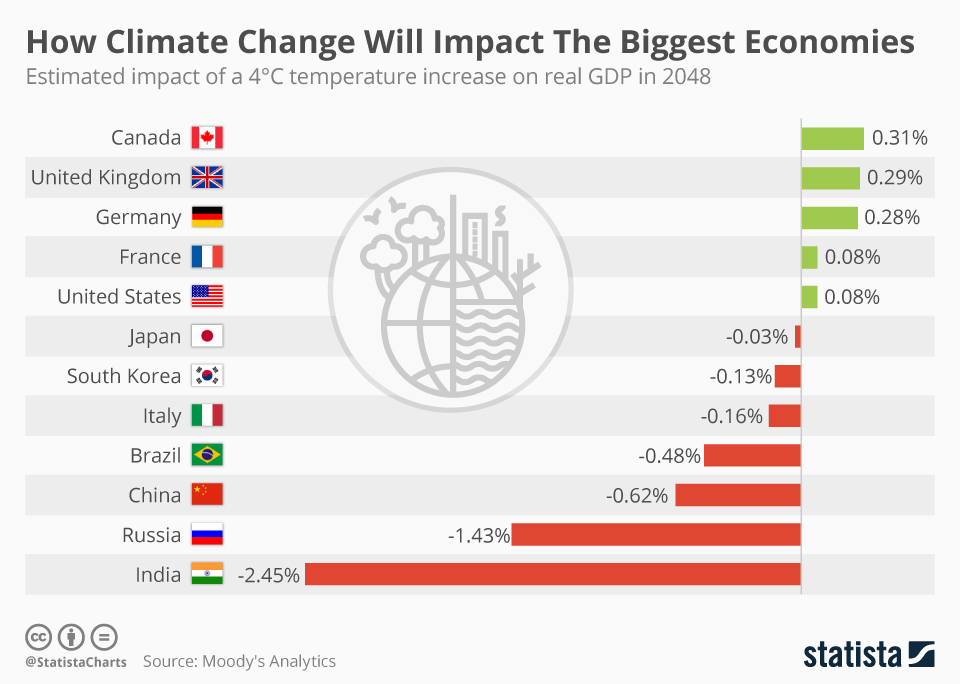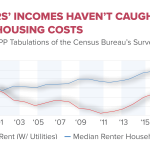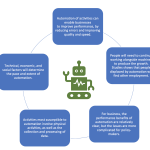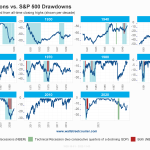The economic impact of climate change is becoming increasingly urgent as new studies reveal staggering projections that challenge previous assumptions. Recent analysis indicates that the economic toll of climate change could result in a 12% decline in global GDP for every additional degree Celsius of warming, a figure six times higher than past estimates. This alarming trend highlights the critical need for effective climate change economics strategies to mitigate future financial losses. As countries grapple with the reality of rising temperatures, the projected GDP decline climate numbers demand immediate attention, especially considering the long-term costs of inaction and necessary decarbonization efforts. Understanding these dynamics is essential for policymakers aiming to safeguard economic stability amidst changing climate conditions.
The financial ramifications of global warming present a pressing topic as we assess the broader implications of ecological deterioration. With shifts in weather patterns and increasing extreme events, the effects of climate variability on national economies are becoming starkly apparent. These climate change projections are not only scientific forecasts but also warnings for future fiscal health, particularly regarding the potential GDP diminishment associated with environmental changes. As nations face the economic toll climate change imposes, the strategic decisions around carbon emission reductions and related decarbonization costs become pivotal. Analyzing the intricate connections between climate conditions and economic vitality is critical for crafting effective response plans and ensuring long-term sustainability.
The Alarming Economic Forecast of Climate Change
Recent studies indicate that the economic impact of climate change may be far more severe than previously understood. A new analysis reveals projections that suggest every 1°C rise in global temperatures could result in a staggering 12% decline in global GDP. This number is six times greater than earlier estimates, highlighting a compelling need to rethink our approach to climate change economics. The implications of this forecast are not just numerical; they pertain to the potential for extensive disruptions across various sectors, leading to reduced productivity, increased costs, and a consequential economic toll that future generations will have to bear.
The urgency of addressing climate change escalates as we grapple with its implications on economic stability. If global temperatures rise by an additional 2°C by the century’s end, the resulting output and consumption losses may amount to 50%. This continuous decline could dwarf the economic devastations witnessed during the Great Depression, making it a chronic issue that persists indefinitely. As economies worldwide continue to grow amid these shifts, the overall gains will be overshadowed by the continual loss incurred due to climate changes, illustrating the dire need for immediate action in the realms of climate policy and sustainable practices.
Decarbonization Costs and Their Economic Implications
The path toward decarbonization presents a crucial intersection of economics and environmental policy. Current estimates suggest that the social cost of carbon may be significantly undervalued when evaluating the true costs of greenhouse gas emissions on global economies. The recent recalculations show that while traditional estimates place the U.S. social cost of carbon around $211 per ton, a more comprehensive model indicates it could be as high as $1,056 per ton. This disparity in estimates underlines the importance of accurately determining the economic toll of climate change to inform significant policy adjustments and the feasibility of decarbonization initiatives.
Interestingly, the findings also reveal a positive takeaway regarding the cost-benefit analysis of decarbonization measures. Major economies, like the U.S. and European Union, may find that investing in renewable energy and emission reductions surpasses the costs associated with these initiatives. For instance, the 2022 Inflation Reduction Act set decarbonization costs at approximately $95 per ton, making it evident that transitioning toward greener alternatives not only aligns with environmental objectives but also has the potential to stimulate economic growth. This understanding fosters a synergistic relationship between economic policy and climate action, underscoring that sustainable development is both a necessity and a viable economic strategy.
Predicting Economic Toll: Insights and Challenges
As climate science evolves, so too must our understanding of its economic ramifications. The challenges of predicting climate change projections are compounded by the intricate interplay of technological advances and socioeconomic factors. The traditional approach has relied heavily on temperature variations at national levels, which neglects the broader implications of global warming and its correlated extreme weather events. As we strive to create accurate models, it becomes clear that future economic forecasts must take into consideration the increased frequency and severity of these extreme conditions, which can obliterate productivity and infrastructure.
Beyond just the temperature rises, factors such as technological innovation play a pivotal role in shaping climate change economics. While many economists have previously held a more tempered outlook regarding future GDP impacts due to presumed ongoing growth, the data suggests a serious re-evaluation is due. The long-term economic toll from climate change, especially with worsening extreme weather events, should not be underestimated. To formulate effective adaptation and mitigation strategies, stakeholders must reconcile traditional economic models with updated climate data that reveals how further warming will stress resources, alter market dynamics, and necessitate major changes to economic structures.
Global Temperature and Its Economic Consequences
The correlation between rising global temperatures and economic performance is one of the critical focal points in understanding the significance of climate change. The recent research has established a direct link: every 1°C increase can catapult global GDP losses to an alarming 12%. This finding not only challenges previous assumptions within climate change economics but also underscores the potential for widespread economic destabilization if no proactive measures are undertaken. Policymakers and economists must advocate for immediate and decisive action to mitigate this warming, as the repercussions will ripple across all countries regardless of their development status.
Furthermore, the escalating threat of climate change necessitates urgent investment in adaptive practices and resilience building in economies worldwide. The interconnectedness of global markets means that impacts felt in one region can resonate throughout the global economic landscape. Countries must recognize their role in either contributing to or alleviating the crisis. Projections indicate that failing to address the rising temperatures could lead to economic consequences that we cannot recover from, ratifying the argument for integrated climate action strategies to bolster economic resilience.
Reevaluating Climate Change Economics Amidst New Findings
The findings presented in recent climate studies compel a significant reconsideration of the economic concepts traditionally applied to climate change impacts. The notion that climate change will only result in modest declines in productivity is emerging as an outdated narrative, as new evidence suggests vastly larger economic repercussions. It is essential for economists and policymakers to adapt their models to encapsulate these evolving realities, which reflect a more alarming picture of how climate change economics intertwine with technological advancements and demographic shifts.
This reevaluation must extend to the methodologies employed in analyzing climate impacts. The research conducted over 15 years has paved the way for a nuanced understanding of how local temperature variations contribute to broader economic outcomes. By embracing rigorous analytical frameworks that incorporate global temperature spikes and subsequent effects on capital and productivity, we can develop more reliable economic models. These models should inform investments in climate adaptation strategies that protect future economic stability while championing sustainable growth.
The Future of Economic Growth in a Warming World
As global temperatures climb, the trajectory of future economic growth is increasingly uncertain. While it’s suggested that economies may still appear richer by 2100 compared to today, the cost of climate inaction could result in us being only half as prosperous as we could have been under stable climatic conditions. This stark juxtaposition unveils the inherent risks of allowing climate change to proceed unchecked. By analyzing economic forecasts in tandem with climate factors, we discern a more intricate and challenging pathway towards sustainable economic prosperity.
To navigate these challenges, proactive engagement in climate-friendly policies is essential. Decarbonization must not just be understood as an environmental obligation but as a strategic economic necessity. Investments into renewable energy, energy efficiency, and green technologies present opportunities for job creation and economic revitalization. By fostering innovation in sustainable practices, economies can not only mitigate the impacts of climate change but also position themselves favorably in the global market. The future hinges on how effectively we harness these opportunities amid the pressing realities of climate change.
Strengthening Global Collaboration for Climate Action
Addressing the economic ramifications of climate change requires a unified approach among nations. The interconnectedness of global economies and shared vulnerabilities highlight the necessity for strengthened international collaboration. Understanding that the impacts of climate change transcend borders is crucial for fostering cooperative strategies that enable all nations to play their part in mitigating these economic challenges. Such collaboration can pave the way for innovative solutions, capital investment in climate resilience, and sharing of technological advancements essential for tackling climate issues.
Moreover, international partnerships can enhance funding opportunities for developing countries disproportionately affected by climate change without the resources to respond effectively. By establishing frameworks for shared responsibility and resource allocation, global leaders can ensure that economically fragile regions are supported in their efforts to adapt. This solidarity will play a pivotal role in stabilizing global economies and reinforcing the collective commitment to addressing the formidable economic toll posed by climate change.
Investing in Climate Resilience for Economic Stability
Realizing the economic impact of climate change compels industries and governments to prioritize investments in climate resilience. These investments are not merely a cost but a strategic imperiousness that can safeguard economic stability in the face of worsening climate scenarios. By reinforcing infrastructure against climate impacts, enhancing disaster response capacity, and embracing sustainable practices, economies can mitigate the risks associated with climate variability. Such proactive strategies will not only protect existing wealth but will also create a rich foundation for future economic growth.
As demonstrated by innovative approaches within the decarbonization framework, the economic benefits of climate resilience extend to creating job opportunities in green sectors, fostering new business models, and increasing community stability. The return on investment in climate science can lead to substantial economic returns while also ensuring environmental protection. With growing recognition of these interdependencies, the imperative for climate resilience becomes ever clearer; it is a cornerstone of a sustainable economy.
Climate Change Economics: A Call for Immediate Action
In light of the grave predictions about the future economic toll of climate change, there’s an urgent call for immediate action. Economists, scientists, and policymakers must work hand-in-hand to reassess and revise existing frameworks that have previously underestimated the consequences of unchecked warming. A collective understanding of climate change economics that emphasizes the severe projected GDP losses is paramount for mobilizing the necessary resources and public will. This intervention is vital not just for economic survival but for the wellbeing of our planet and future generations.
Public awareness and engagement are equally crucial. Every individual, community, and organization can contribute to efforts in climate action, thereby collectively alleviating potential economic disasters. Accelerating transitions to sustainable energy and conservation practices holds the promise of alleviating some of the imminent threats posed by climate change. The dialogue must shift from skepticism to action, incorporating robust climate policy measures that protect our economies while prioritizing sustainability.
Frequently Asked Questions
What is the economic impact of climate change on global GDP?
The economic impact of climate change on global GDP is significant. Studies indicate that each 1°C rise in global temperature can lead to a 12% decline in GDP, with losses peaking relatively quickly after the temperature increase. This projection is six times larger than previous estimates, highlighting a serious economic toll from climate change.
How do climate change projections affect economic growth forecasts?
Climate change projections suggest that ongoing warming could severely dampen economic growth. Researchers estimate that if global temperatures rise by an additional 2°C by the end of the century, global output and consumption could decrease by 50%. This scenario would result in an economic landscape that is twice as bleak as what we would expect without climate change.
What are the economic tolls associated with climate change in comparison to past economic crises?
The economic tolls from climate change could dwarf past economic crises. For instance, a predicted 50% reduction in output and consumption resulting from a 2°C temperature rise is essentially twice as severe as the Great Depression, emphasizing the long-term economic risks associated with climate change.
How do decarbonization costs compare to the economic impact of climate change?
Decarbonization costs are significantly lower than the long-term economic impacts of climate change. Estimates suggest that the social cost of carbon could be as high as $1,056 per ton, which is much more than the costs associated with federal decarbonization efforts. Therefore, investing in decarbonization appears economically justified, especially for major economies.
What role do extreme weather events play in the economics of climate change?
Extreme weather events, which are becoming more frequent due to climate change, greatly affect the economy by damaging capital and reducing productivity. These events underscore the importance of considering global temperature in economic forecasts, as they can lead to substantial economic disruptions far beyond what local temperature variations indicate.
How do climate change economics inform policies for economic growth?
Climate change economics play a crucial role in shaping policies aimed at sustaining economic growth. By understanding the potential GDP declines due to climate change, policymakers can prioritize decarbonization efforts. Investments in renewable energy and sustainability can mitigate economic losses and offer long-term benefits by enhancing resilience against climate-related impacts.
| Key Points | Details |
|---|---|
| Revised Economic Estimates | New research indicates that the economic toll from climate change is six times greater than previously thought. |
| Temperature and GDP Impact | Every additional 1°C rise in global temperatures could lead to a 12% decline in global GDP. |
| Historical Temperature and Economic Data | The study utilized data from the past 120 years to correlate economic outcomes with temperature increases. |
| Extreme Weather Events | Increased global temperature correlates with more frequent and severe weather extremes, affecting productivity and capital. |
| Comparison of Social Cost of Carbon | The social cost of carbon is estimated at $1,056 per ton globally, significantly higher than earlier estimates of $185 per ton. |
| Decarbonization Benefits | Decarbonization measures are economically viable, passing cost-benefit analysis for major economies like the U.S. and EU. |
Summary
The economic impact of climate change is becoming increasingly evident as new studies reveal staggering costs associated with rising global temperatures. Recent research indicates that the projected economic toll is six times larger than previous estimates, suggesting that climate change could severely impair global GDP by as much as 12% for each additional 1°C rise in temperature. This alarming trend underscores the urgent need for comprehensive decarbonization policies that not only mitigate environmental threats but also protect and enhance economic stability.










